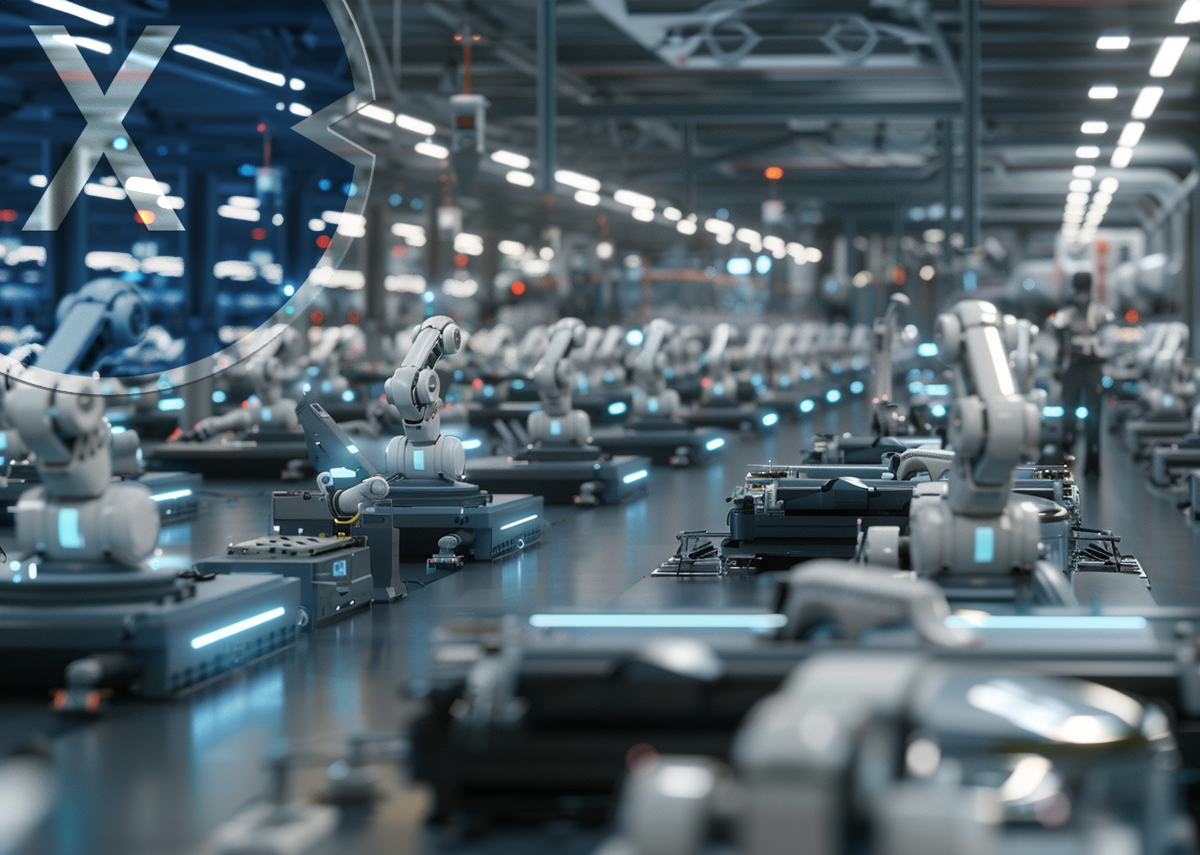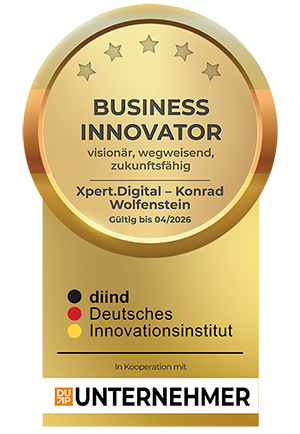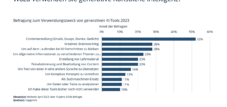Generalized Intelligence: Transformative Power of AI in Business – Realistic Prospects or Exaggerated Predictions?
Published on: August 17, 2024 / Update from: August 17, 2024 - Author: Konrad Wolfenstein

Generalized Intelligence: Transformative Power of AI in Business – Realistic Prospects or Exaggerated Predictions? Revolution or marketing hype? – Image: Xpert.Digital
😊📊🤖 Generalized Intelligence: Transformative Power of AI in Business
🤔💭 The discussion about the role of artificial intelligence (AI) in the economy is currently omnipresent. But what does it really mean when people talk about “generalized intelligence” and what impact could it actually have on the economy? Is this a revolutionary development or just clever marketing hype?
🔍📚💡 Definition of Generalized Intelligence
“Generalized intelligence” refers to a form of AI that is able to handle tasks that normally require human intelligence. Unlike specialized AI systems that are programmed for specific tasks, such as language translation or image recognition, generalized intelligence can respond more flexibly to a variety of problems.
🚀💼🛠️ Potential of Generalized Intelligence
The potential of generalized intelligence for business is enormous. Companies could use this to automate numerous processes, which not only saves costs but also increases efficiency. Some of the most important application areas could be customer service, production and logistics.
Customer service
In customer service, AI-controlled chatbots and virtual assistants could offer personalized, 24/7 services. This would not only increase customer satisfaction, but also free up human employees, who could then concentrate on more complex and important tasks.
production
In production, the use of AI enables precise control and monitoring of production processes. Machines could recognize and carry out maintenance work independently, minimizing downtime. In addition, AI can identify and implement efficiency improvements through continuous analysis of production data.
logistics
In logistics, AI can optimize the entire supply chain process. From warehouse management to route planning and optimization, AI offers solutions that not only reduce costs, but also shorten delivery times and reduce the environmental footprint.
🏭📈🔧 Industry 4.0: A gradual transformation
The often sensational headlines about revolutionary changes in Industry 4.0 should be viewed with caution. The reality is far more nuanced and iterative. Instead of a sudden disruption, we are witnessing a gradual implementation of AI technologies.
Practical implementations
Many companies are already integrating AI into their existing systems, with the process often taking place in small, manageable steps. For example, production companies start by implementing small pilot projects before making larger investments. This iterative approach enables companies to identify and correct errors and challenges at an early stage.
Challenges and solutions
One of the biggest challenges in introducing generalized intelligence is its integration into existing systems and processes. Companies often have to extensively adapt their IT infrastructure to benefit from the advantages of AI. This requires not only technical know-how, but also significant financial resources.
In addition, ensuring data quality and security represents a significant challenge. In order to make precise predictions and analyses, AI systems require large amounts of high-quality data. Companies therefore need to invest in robust data collection and analysis systems.
🤔📄💡 Realistic prospects instead of hype
The idea that AI will take over every industrial activity in a few years is exaggerated and misleading. Rather, the practice-oriented development shows a picture of gradual acceptance and integration. There are also ethical and regulatory concerns that need to be addressed before AI can achieve its full benefits.
Ethics and Regulation
A key aspect when introducing AI is the consideration of ethical issues. How is responsibility for decisions made by an AI regulated? How can we ensure that AI systems do not reinforce discrimination or make unethical decisions?
Regulators around the world are working to develop policies and laws that make the use of AI safe and fair. These regulatory frameworks are necessary to protect the rights and safety of users and to increase trust in AI systems.
Workplace changes
Another significant challenge is the change in the world of work. While AI can automate many tasks, there is concern that many jobs could be eliminated. It is therefore crucial that companies and governments develop strategies to prepare workers for the new requirements. This includes, but is not limited to, retraining programs and lifelong learning to ensure people can keep up with changing technological needs.
🌱🌍📉 An opportunity for sustainable growth
The discussion generated about generalized intelligence and its potential impact on the economy presents both opportunities and challenges. The transformation will not happen suddenly, but rather will take place as a continuous and iterative process. While AI technology has the potential to revolutionize many aspects of business, it is important to have realistic expectations and consider the ethical, regulatory and social challenges associated with it.
Companies that deal with the integration of generalized intelligence at an early stage can gain competitive advantages in the long term. The considered and responsible use of AI can usher in a new era of efficiency, innovation and sustainability in the economy. It is up to us to use this transformative power wisely and take the necessary actions to shape a positive and inclusive future.
📣 Similar topics
- 🤖 Generalized Intelligence: The Future of Business
- 🧠 AI in production: rethinking efficiency
- 🚀 Industry 4.0: A slow but sure change
- 💬 Customer service revolutionized by AI
- 📦 AI in logistics: Optimizing the supply chain
- 🔍 Challenges of AI integration
- 🔒 Data quality and security in AI
- ⚖️ Ethics and regulation of AI
- 👩🏫 Workplace change through AI: opportunities and challenges
- 🌱 Sustainable growth through responsible AI
#️⃣ Hashtags: #GeneralIntelligenz #Industrie4_0 #KünstlicheIntelligenz #EthikInDerKI #Sustainability
We are there for you - advice - planning - implementation - project management
☑️ SME support in strategy, consulting, planning and implementation
☑️ Creation or realignment of the digital strategy and digitalization
☑️ Expansion and optimization of international sales processes
☑️ Global & Digital B2B trading platforms
☑️ Pioneer Business Development
I would be happy to serve as your personal advisor.
You can contact me by filling out the contact form below or simply call me on +49 89 89 674 804 (Munich) .
I'm looking forward to our joint project.
Xpert.Digital - Konrad Wolfenstein
Xpert.Digital is a hub for industry with a focus on digitalization, mechanical engineering, logistics/intralogistics and photovoltaics.
With our 360° business development solution, we support well-known companies from new business to after sales.
Market intelligence, smarketing, marketing automation, content development, PR, mail campaigns, personalized social media and lead nurturing are part of our digital tools.
You can find out more at: www.xpert.digital - www.xpert.solar - www.xpert.plus























